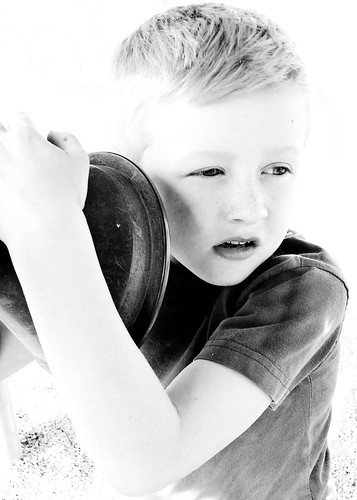If you are going through or thinking about starting a Collaborative Divorce, you might wonder why you need a Child Specialist. After all, if you and your spouse agree on custody and parenting time (previously called “visitation”), why spend money on a Child Specialist? As a Collaborative Attorney and Mediator, I enjoy helping parents with the parenting piece; however, I am not an expert in child development, and I don’t meet with the children. Furthermore, I don’t want parents to come up with just any old plan – my wish for them is to succeed in their post-divorce co-parenting relationship and raise happy, healthy kids.
A Child Specialist helps you and your spouse create not only the day-to-day and holiday/vacation schedule, but helps you identify your goals and values as parents, so you can create a custom-made plan specifically addressing the unique needs of your children. As parents in a fast-paced world, we need to determine the appropriate age for our kids to have a cell phone. We need to think about how much screen time per day is healthy. Is texting at the dinner table OK (not!)? These are issues parents need to deal with at some point, but parents residing separately really need to be on the same page. Child Specialists can assist with these decisions. Clients often tell me how glad they are they hired a Child Specialist, because they are more in-tune with their children, and are therefore, better parents.
Child Specialists are valuable members of the Collaborative Team and are wonderful resources for parents. Believe me, I know this personally because I consult with them when I have questions about my own kiddo! Although you know your children the best (their funny little quirks, favorite color, best friend’s name, and so forth) Child Specialists know what makes children tick from a developmental perspective; thus, they are treasure troves of information. Why not tap into that? Think of it this way: would you rather spend the money on an expert who can guide you now to the land of great co-parenting or spend two, maybe three times or more on therapy for your kids later, because you and your spouse did the bare minimum to just get through the divorce (understandable – it’s a painful ordeal). Consistency in parenting, as well as respecting and understanding your different parenting styles and personalities, can be the difference between a “so-so” parenting plan and a “so-good” parenting plan. It’s easy to spend time and money on gadgets, toys, clothes, and activities for kids, so consider taking the time and money to invest in utilizing a Child Specialist to craft a parenting plan that will help you and your spouse co-parent effectively post-divorce. I bet you’ll be glad you did!
 In my family law practice, I have seen well over 1,000 people divorce. Without a doubt, divorce is a difficult and painful process. However, I have been deeply enriched as a family law attorney by working with many spouses who have used this difficult process to set themselves on a new life path. Frequently a spouse will first enter my office full of emotion and fear. How will the children fare? Will there be sufficient money to pay the necessary expenses? For stay – at -home spouses who must now begin working, can they succeed in the work place? Can they even find meaningful work that will pay a decent wage?
Often I work most closely with such spouses in the collaborative law process. We start from the ground and work our way up. What do they know about their finances? What is the family budget? What is their earning ability? How does earning a living intersect with raising children? Can one do both and if so how? Often with the assistance of a financial professional, we build budgets, spread sheets and cash flow analysis. Those who have little interest in finances or previous experience with finances begin to get their sea legs under them as to what their financial situation is, will be after the divorce and what they can do for themselves to maximize their well-being following the divorce.
Spouses also learn that they do not need to continue with the same troublesome patterns of relating to their spouse, particularly regarding children. Instead, time is spent focusing on constructive, but firm communications. The intent is for a spouse again to develop confidence that she or he can hold his or her own following the divorce, in a health and constructive way.
I have seen countless times, a spouse who first came to my office small and scared, leave the marriage with strength and confidence, and even excitement about starting the next leg of their amazing life journey.
In my family law practice, I have seen well over 1,000 people divorce. Without a doubt, divorce is a difficult and painful process. However, I have been deeply enriched as a family law attorney by working with many spouses who have used this difficult process to set themselves on a new life path. Frequently a spouse will first enter my office full of emotion and fear. How will the children fare? Will there be sufficient money to pay the necessary expenses? For stay – at -home spouses who must now begin working, can they succeed in the work place? Can they even find meaningful work that will pay a decent wage?
Often I work most closely with such spouses in the collaborative law process. We start from the ground and work our way up. What do they know about their finances? What is the family budget? What is their earning ability? How does earning a living intersect with raising children? Can one do both and if so how? Often with the assistance of a financial professional, we build budgets, spread sheets and cash flow analysis. Those who have little interest in finances or previous experience with finances begin to get their sea legs under them as to what their financial situation is, will be after the divorce and what they can do for themselves to maximize their well-being following the divorce.
Spouses also learn that they do not need to continue with the same troublesome patterns of relating to their spouse, particularly regarding children. Instead, time is spent focusing on constructive, but firm communications. The intent is for a spouse again to develop confidence that she or he can hold his or her own following the divorce, in a health and constructive way.
I have seen countless times, a spouse who first came to my office small and scared, leave the marriage with strength and confidence, and even excitement about starting the next leg of their amazing life journey.
Image courtesy of photostock / FreeDigitalPhotos.net
When it comes to co-parenting after divorce, the best parenting plan is the one you never have to use.
Creating the parenting plan is perhaps the most important part of your collaborative divorce process. But if you put the time and energy into creating a complete plan, you will lay the foundation for good communication and have the flexibility to work with your former spouse as your children’s needs change in the future. The habits of good co-parenting will be ingrained and will be second nature.
Minnesota law permits parents to avoid the labels of legal and physical custody if they have a parenting plan that spells out the important aspects of parenting. In collaborative divorce, parents frequently choose to use a child specialist who can help them develop a thoughtful parenting plan that is tailored to their family. Parenting plans typically include:
- the schedule of how the children will divide their time between the parents;
- how the parents will communicate about their children;
- how the parents will make important decisions related to their children, such as schools, activities, and religion;
- how the parents will handle child care and medical care;
- how the parents will handle contact with the extended family;
- how the parents will introduce the children to new partners.
 As a neutral child specialist, I value the opportunity to learn from the children with whom I work, all of whom have parents who are ending or have ended their marriage or partnership. Parents add a neutral child specialist to their Collaborative team because they see the benefit of children having a voice and getting the support of a mental health professional during a very difficult time in their lives.
I will never forget the very wise voice of a little girl who told me, “Deb, I’m not gonna tell my friends that my parents are getting divorced—that sounds too jaggedy. I’m gonna tell them my parents are getting unmarried, because that means the same thing.” How simple and how brilliant!
It is true that our neural nets for the word “divorce” include a lot of jagged associations that sound painful and scary to parents, and even more so to their children. The term “unmarried” helps create a new and more hopeful neural net of associations during and after a divorce or break up.
How different to a child’s ear to hear that her family is changing how it works rather than her family is broken? To understand that parents will co-parent rather than have joint custody? To believe that children will be kept at the center and not in the middle? Listening to children’s voices helps keep a crisis in their lives from ever becoming a trauma—and that is priceless.
As a neutral child specialist, I value the opportunity to learn from the children with whom I work, all of whom have parents who are ending or have ended their marriage or partnership. Parents add a neutral child specialist to their Collaborative team because they see the benefit of children having a voice and getting the support of a mental health professional during a very difficult time in their lives.
I will never forget the very wise voice of a little girl who told me, “Deb, I’m not gonna tell my friends that my parents are getting divorced—that sounds too jaggedy. I’m gonna tell them my parents are getting unmarried, because that means the same thing.” How simple and how brilliant!
It is true that our neural nets for the word “divorce” include a lot of jagged associations that sound painful and scary to parents, and even more so to their children. The term “unmarried” helps create a new and more hopeful neural net of associations during and after a divorce or break up.
How different to a child’s ear to hear that her family is changing how it works rather than her family is broken? To understand that parents will co-parent rather than have joint custody? To believe that children will be kept at the center and not in the middle? Listening to children’s voices helps keep a crisis in their lives from ever becoming a trauma—and that is priceless. 
